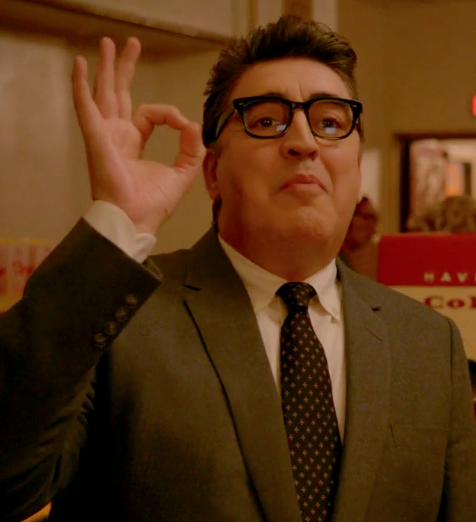 Previously
Previously
1 "Pilot"
2 "The Other Woman"
3 "Mommie Dearest"
by Eric Blume
Episode 4, “More, Or Less” marks the halfway point for Feud: Bette and Joan, and this episode focuses on power and limitations, not only for its title characters, but for everyone surrounding them.
This episode sees both lead actresses confronted by a lack of offers after the completion of shooting Whatever Happed to Baby Jane?. Susan Sarandon’s reaction to meeting her new young agent is priceless, and Jessica Lange has a “fuck you fellas” scene that feels right out of Mommie Dearest.
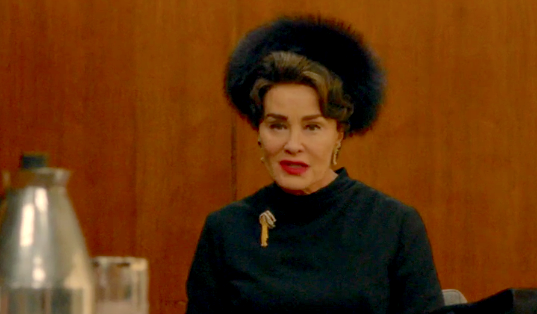
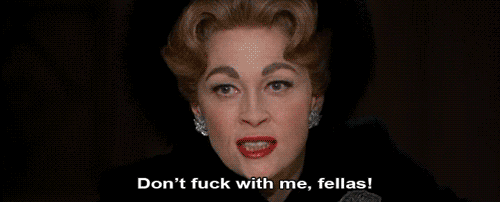
What follows this opening is a trio of reflexive scenes that comment on Feud itself: a discussion between Aldrich and his assistant Pauline of how television has helped young audiences know who older performers are; Pauline and Mamacita’s conversation about “right-hand ladies”; and Crawford’s comment on “a woman director…it really is over” (Ryan Murphy has staffed most of the show with female directors). These scenes are very on-the-nose and more than a little self-conscious on making contemporary connections. It gets the episode off to a rocky start, but the second half moves into full swing and wider scope as it follows, for the first time, the Robert Aldrich character.
Alfred Molina scores big in this chapter. What he’s touched upon in smaller ways in earlier episodes pays off beautifully here. Molina’s Aldrich loves women: you see it in the small scenes with his wife, everything he does with Sarandon, and his lovely scene with Alison Wright’s Pauline, as he champions her and her talent. This is contrasted with Molina’s scenes with Stanley Tucci’s Jack Warner, where when he finds himself in a power struggle with another man, he feels more at sea. He’s also humiliated by Frank Sinatra while filming 4 For Texas.
Feud gets to something truly interesting here: a man who feels confident and secure swimming through the power dynamics between the sexes, but who backs down against cruel men who put him down. Aldrich feels marginalized and also wants to play with the “big boys”. Whether this was true of the real Aldrich is questionable, but as drama, it plays, and Molina creates some true complexity. He also will have a strong episode to submit for his Best Supporting Actor Emmy in a few months.
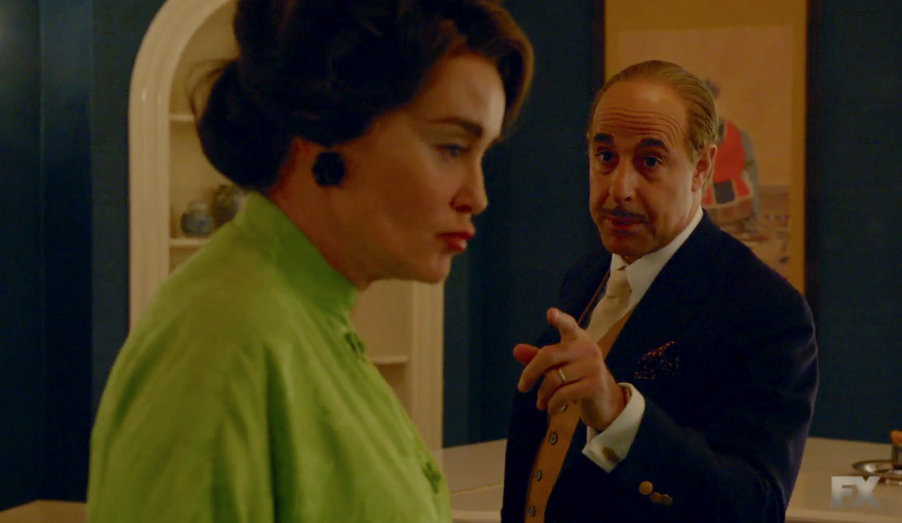
BEST JESSICA/JOAN MOMENT
Jessica’s reading of “I have very few chances left” has a deepfelt and eerily personal resonance. It’s fun to see Lange, who has never been particularly ambitious about her career, play someone who was so deeply committed to hers. And the scene between Lange and Tucci, where she tries to come on to him, has a bunch of funny beats where they each find and exploit their mutual loathing. Tucci goes into every scene like you imagine Jack Warner did: with the objective “I will win”.
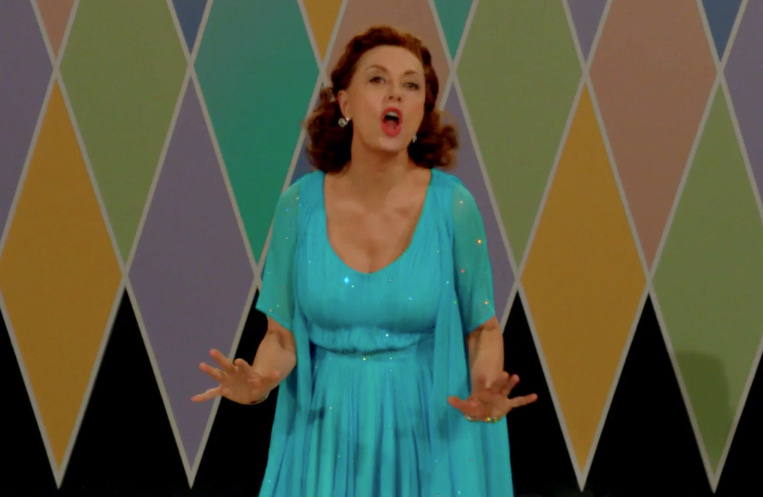
BEST SUSAN/BETTE MOMENT
Sarandon does a glorious recreation of Davis singing on The Andy Williams Show, nailing not just the physical stuff but also Davis’ slight discomfort and embarrassment. But her scene with Molina, where he presents her with an ashtray of the millionth ticket sold, nails the star’s feeling of betrayal by an industry to which she feels she always delivered.
QUICK ADDITIONAL THOUGHTS
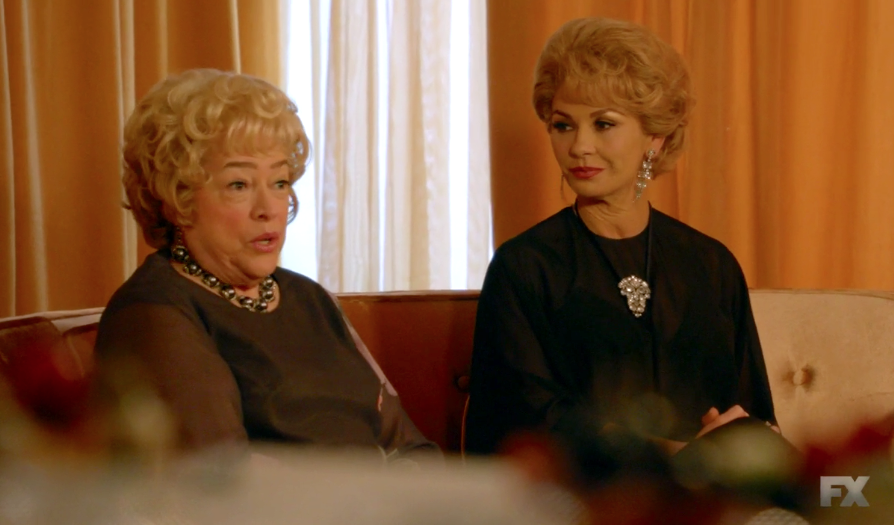
• The 1978 interview segments with Kathy Bates and Catherine Zeta-Jones as Joan Blondell and Olivia de Havilland are far and away the worst part of the series. Bates and CZJ are both terrible, and the framework seems to serve no purpose other than getting them attached to the show for a press release of big names last year.
• Lange and Sarandon obviously made the big choice to not focus on the physical traits of the actual Crawford and Davis, and instead play them as characters. This is truly a dividing line for audiences, as discussed here on this site and everywhere, that the actresses are playing “themselves” more than the icons. Personally, I think Lange’s natural penchant for theatricality and Sarandon’s fierce directness are perfect matches for the roles, and what both are doing within any given scene is far more interesting than if the actresses were “more like” Crawford and Davis. Their scenes together are fantastic, and you miss them together in this episode.
• I’m personally grateful that Feud avoids or transcends camp at least most/some of the time. This show could easily have gone off the rails by now as most Ryan Murphy shows do, but all of these actors are playing people with beating hearts. It’s nowhere near The People v OJ Simpson arena in terms of substance and power, but the show occasionally takes a high road of subtlety when you least expect it.